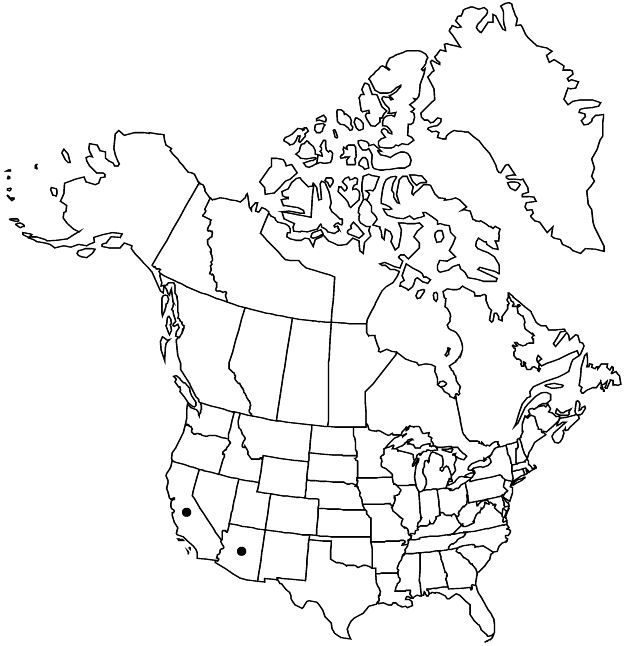Difference between revisions of "Ayenia compacta"
Contr. U.S. Natl. Herb. 8: 321. 1905.
FNA>Volume Importer |
imported>Volume Importer |
||
| (2 intermediate revisions by 2 users not shown) | |||
| Line 51: | Line 51: | ||
|publication year=1905 | |publication year=1905 | ||
|special status= | |special status= | ||
| − | |source xml=https:// | + | |source xml=https://bitbucket.org/aafc-mbb/fna-data-curation/src/2e0870ddd59836b60bcf96646a41e87ea5a5943a/coarse_grained_fna_xml/V6/V6_363.xml |
|subfamily=Malvaceae subfam. Byttnerioideae | |subfamily=Malvaceae subfam. Byttnerioideae | ||
|genus=Ayenia | |genus=Ayenia | ||
Latest revision as of 22:20, 5 November 2020
Subshrubs, erect or decumbent, (0.1–)0.5–0.8(–1) m. Stems hairy, hairs stellate, arms appressed. Leaves: petiole 0.5(–0.8) cm; blades of proximal leaves orbiculate to broadly ovate, 0.3–0.5 × 0.3–0.5 cm, distal ovate to ovate-lanceolate, unlobed, 1–1.5 × 0.5–0.9 cm, base rounded to slightly cordate, margins serrate, ciliate, apex obtuse to subacute, 3(–5)-veined from base, surfaces stellate-hairy. Cymes axillary, not borne on short shoots (brachyblasts), 1(or 2)-flowered; peduncle 1–2.5 mm. Flowers: sepals caducous, not present in young fruit, not reflexed at anthesis, ovate-lanceolate, 1.5–3 mm, sparingly stellate-pubescent abaxially; petal claws 2–3 mm, lamina rhombic, 1–1.5 × 1.5–3 mm, base attenuate on claw, margins entire, apex notched, surfaces hairy abaxially, hairs simple, multicellular, abaxial appendage cylindric, 0.2–0.3 mm; androgynophore 1–1.5 mm; stamen filaments present; stigmas scarcely exserted. Capsules subglobose, (3.5–)4.5–5 × 3–4.5 mm, sparingly stellate-pubescent, prickles 0.1–0.3 mm. Seeds 2–2.5(–2.9) mm, slightly to densely tuberculate. 2n = 20.
Phenology: Flowering and fruiting spring–early fall.
Habitat: Rocky slopes, gravelly or sandy washes, dry canyons
Elevation: 100–1200 m
Distribution

Ariz., Calif., Mexico (Baja California, Baja California Sur, Sonora).
Discussion
In the United States, Ayenia compacta is known from southernmost California and Arizona; in Mexico, it is found on the Baja California peninsula and in Sonora on islands in the Gulf of California.
Selected References
None.